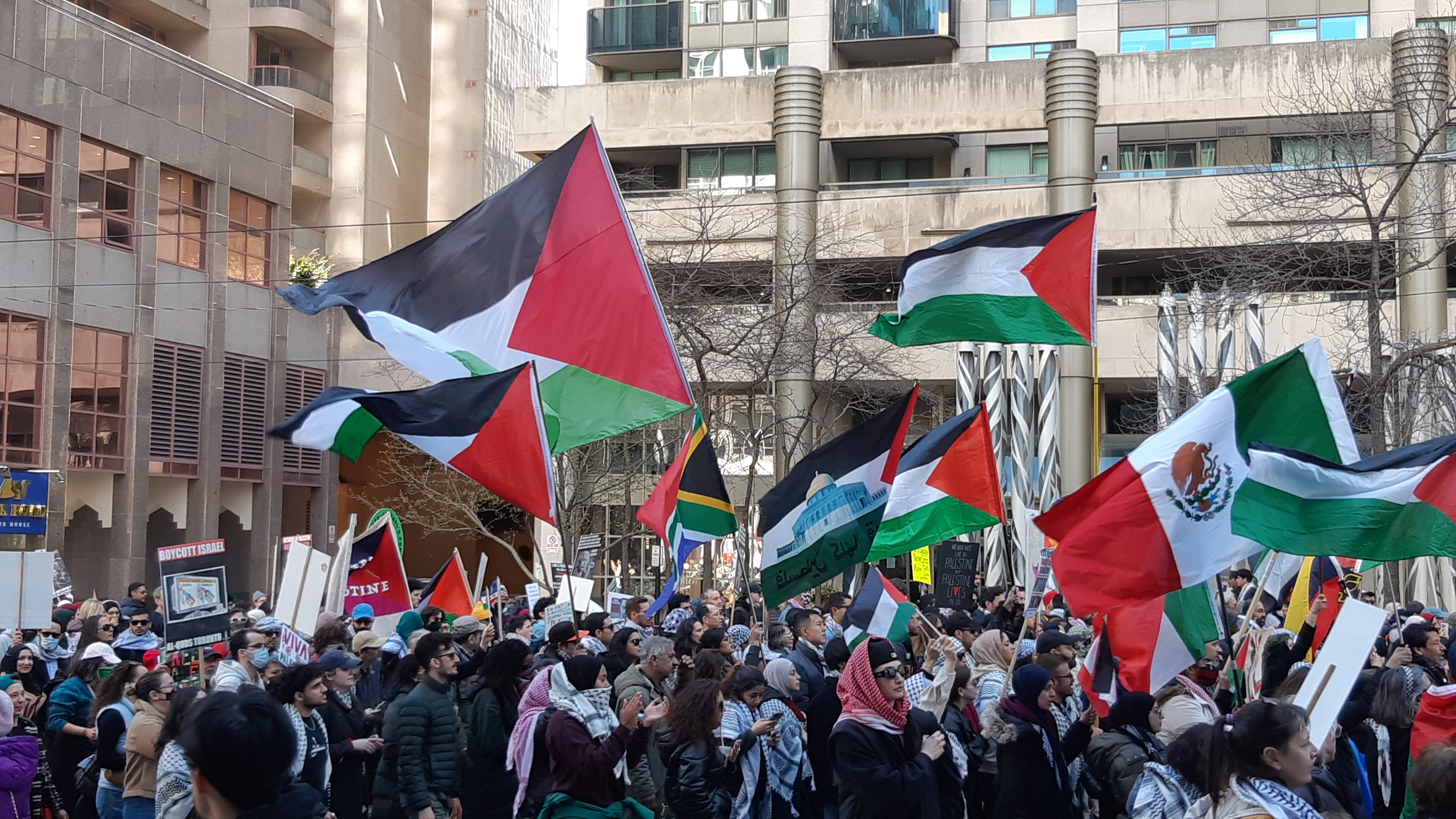Why would you leave the Caribbean to go and fight in the Middle East? Some 16,000 men did that in World War I, fighting and dying for the British Empire in lands so far from home. The men were part of the British West Indies Regiment. They came from Jamaica, Bahamas, Grenada, St Vincent, Belize, Panama, Barbados, St. Lucia, Guyana, and Trinidad and Tobago. I thought about the men as I marched along with the other thousands of anti-war protesters in Toronto.
The British West Indies Regiment saw action in what are now the countries of Palestine, Israel, Iraq, Jordan, and Egypt. The men were initially support troops – building trenches, loading ammunition, cooking and cleaning, guarding prisoners – as there was an imperial concern that Black people should not be given guns to kill White people. The racial code also meant that only White officers could lead the regiment.
“Free the people, free the land.”
“No justice, no peace. No racist police.”
“No peace on stolen land.”
The desperation of war challenged the racial code and so the Caribbean troops saw combat in the Middle East and in key battles on the Western Front in France. The British West Indies Regiment liberated Jerusalem – though I am not sure that is the right word. Reports from the day compared them to modern day Crusaders freeing the Holy Land from the hands of the Ottoman Turks. From my modern perspective, it is another twisted tale of empire. Colonial subjects from one area of the empire were used to supress colonial subjects in another area of the empire, with only the White people and their empire benefitting.
Anyway, the Caribbean troops won military awards for their bravery. After the war, they expected to be treated like the other victorious troops, but it did not quite work out that way. The race thing again. No perks. Less pay. Blocked from moving up the ranks.
A terrorist attack massacred people. The right to defend oneself morphs into vengeance. Bombs and starvation as the twin weapons of war.
“Viva, viva Intifada.”
“Justin Trudeau step a side; you are funding genocide.”
“Ceasefire now, ceasefire now.”
When they were recruited, the Caribbean troops were promised that they would get the same pay, training, and equipment as other British troops. They joined the war as they believed in the empire and Rule Brittania. They also enlisted as it was better than languishing at home, under-employed or eking out a living as a peasant farmer. Legacies of slavery. Top jobs, education, and access to money, in the Caribbean were restricted to British colonials and a few members of the light-skinned local elite.
The British West Indies Regiment was demobilised in Taranto, Italy in December 1918. They grew tired of waiting to be treated fairly. They watched as White troops were paid more for doing the same jobs. They were barred from entering military clubs and dances. No Christmas joy. The regiment rioted. British troops turned on each other: the White ones had guns; the Black ones were unarmed.
“Resistance is justified when people are occupied.”
“One, two, three, four, occupation no more.”
“Palestine, Palestine, will never die.”
“Stop killing children. Stop killing journalists. Stop killing doctors. End the occupation now.”
The Taranto Riots lasted four days. A machine gun company of the British Army had arrived, ready for the British Caribbean troops. Some 60 members of the British West Indies Regiment were rounded up, tried, and sentenced from three to twenty years in jail for their part in the revolt. One was executed by firing squad.
The troops retuned to the Caribbean after the war. Some were sentenced to exile in Cuba and Venezuela. Three British warships, armed with machine guns, were sent to Barbados, Jamaica, and Trinidad. Still, the men of the British West Indies Regiment joined the regional strikes and protests to end colonial rule in the Caribbean. They returned home with dreams. Like the Palestinians, they too dreamed of justice and freedom.
© Jacqueline L. Scott. You can support the blog here.

